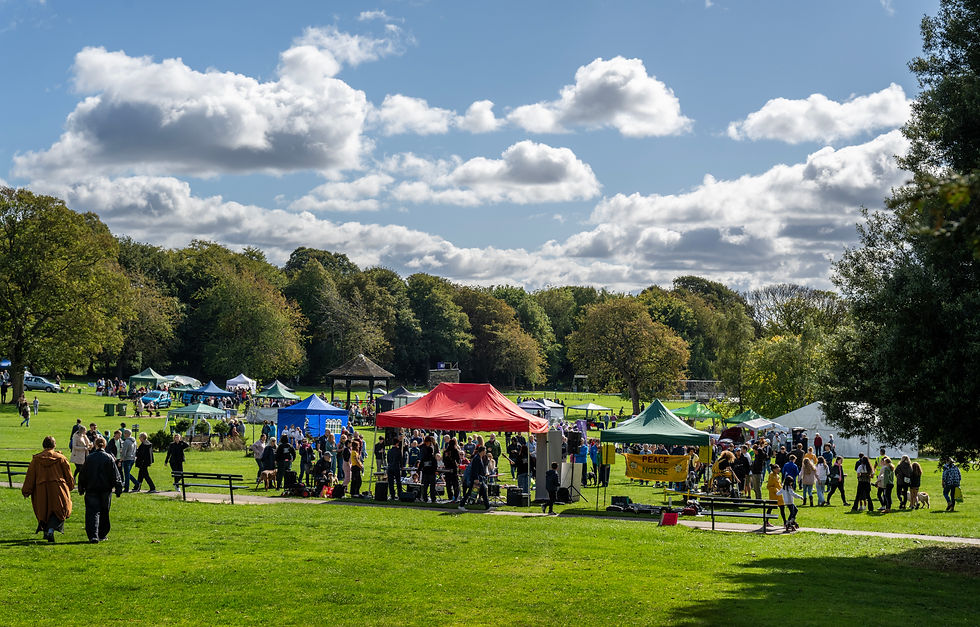Black History Month 2021
- Oct 11, 2021
- 4 min read
October is Black History Month and this year's theme is ‘Proud To Be’. This new campaign is launching to encourage Black and Brown people across the country - including public figures and celebrities - to share ‘what they are proud to be’ and their personal stories.

What is Black History Month?
It is a month of celebration and appreciation of the incredible, rich and diverse Black and Brown people in the UK and the achievements and contributions of Black and Brown people across the world. While Black History Month shines a light on these important assets and histories, it is essential that our actions to tackle racism, and efforts to lift up Black histories are year-round and life-long practices.
Black History Month allows space for reflection, planning and action to free society of the relics of imperialism and colonialism - systems of oppression and exploitation that have contributed to the current climate crisis and the erasure of local knowledge. This year Black History Month is about giving us all the chance to ‘Dig Deeper, Look Closer, Think Bigger’. By doing so we can all think about and form a better understanding of the importance of Black and Brown communities to our pasts, presents and futures.
Black History Month and the Climate Crisis
Racism and the climate crisis are inextricably linked. Together they expose how Black and Brown people are disproportionately impacted by environmental issues as well as the exploitative, extractive industries driving the climate crisis.
Across the globe racism was constructed to justify the imposition of the Western ideologies of capitalism and neoliberalism on Black and Brown communities and nations for the pursuit of profit. Extractivism, overexploitation and colonialism created and continue to embed the deep economic and social inequalities experienced by many to this day. Today it is Black and Brown people across the world that are being impacted most by the climate crisis.
Here in the UK deep racial injustices are present within our society and we have been, for many centuries, one of the key players in the global system of oppression still present today. Within the UK racially minoritised communities often experience environmental racism. The tragic death of 9 year old Ella Adoo-Kissi-Debrah illustrates the impacts faced by those pushed into locations disproportionately exposed to dangerous levels of pollution and poor air quality.
By using Black History Month’s framework of ‘Dig Deeper, Look Closer, Think Bigger’ we are able to understand how climate justice is synonymous with racial justice - with one impossible without the other. We see that histories of colonialism and exploitation have created our system today and that actions in our locality have global consequences.
Black History Month and Climate Activism
As part of this year’s month-long celebration and the ‘Proud To Be’ campaign Black and Brown people will share experiences of contemporary issues - such as climate change, activism and more - from a personal perspective. It is vital that individuals, groups and movements within the climate activist space take time to listen and learn from these experiences to really understand the link between climate justice and racial justice, and inform their own climate action.
It’s important that climate activism incorporates Black History Month’s narrative of thinking bigger by considering the global scale and understanding how Black and Brown people are disproportionately impacted by the climate crisis, as well as how fighting for racial justice is integral to the fight against it.
Everyone is encouraged to make the most of this moment and this opportunity, to take responsibility of further understanding why race and racial justice play a vital role in reversing climate change.
Black History Month and Climate Action Leeds
Climate Action Leeds will soon be working closely with our supporting partner The Racial Justice Network to bring a focus on climate justice and ensure our work is intersectional, recognises colonial legacies and builds solidarity with those most affected locally and abroad.
However, there is much that is left to be done and learnt. Continuing to deepen our understanding of racial justice and its links to climate action is fundamental to our work and ambitions; and we accept responsibility for doing this learning to embed the ‘13th recommendation’ across our programme of work. This requires us to listen, unlearn our own racism, devolve power and work in solidarity with those most impacted.
Educational Resources:
In response to Black History Month Climate Action Leeds has collated a host of resources about anti-racism and the link between climate and racial justice.
Short Reads and Articles:
Webinars, Podcasts and Videos:
Notes on Capitalising Black and Brown
It should also be noted that we have decided to capitalise the ‘B’ of both Black and Brown in this article. It was a decision that came after our own discussions and reading as we learnt the importance of using a capital - although we understand that it is more nuanced than always capitalising these words.
The article we found most informative (The Case for Capitalizing the B in Black) explains the importance of capitalising the ‘B’ as ‘it is a reflection of shared cultures and experiences’ and it works to show how racial identities were created.




Comments